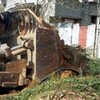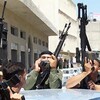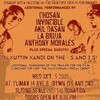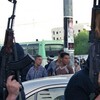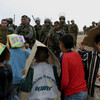
Hurricane Gaza
9 October 2005
As a unilateral act, Israel’s disengagement from the Gaza Strip raises basic questions for both sides in the conflict. For Israel, there is the question of how to define its deed: “Should we declare that the occupation of Gaza is over?” No less important are the questions Palestinians are asking: “Is this a victory? If so, who should get credit?” When Sharon prefers to speak of an end to Israeli “responsibility” rather than “occupation”, he means, above all, economic responsibility. He will discover, however, that Gaza, for its part, cannot disengage. Gazans cannot survive without access to jobs and export markets in Israel. Read more about Hurricane Gaza
